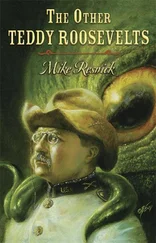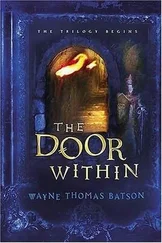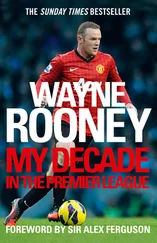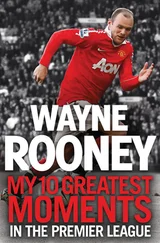I felt foolish that she read a book in high school that I was reading now, but I said, “I am adoring it as well.”
“I devoured Steinbeck in those days,” she said. “All those ’30s writers. Odets, and West…”
She looked around the living room at all the wooden and mirroring furniture and moved one finger over the light pink couch she was sitting on, and then said, “We’re not in Kansas anymore, huh? Though I suppose we all end up very different people from who we were at 16.”
I nodded again, because even though I was a skilled mathematician in high school, I never predicted at 16 that I would be working for Schrub Equities in New York and actually be a guest in the home of Derek Schrub.
And although I did aim to have as impressive a position as I do now, at that age I wasn’t thinking as much about making money.
We discussed the novel, and she told me more about the Great Depression and also about the charities she aided in New York. I lost count of how many she worked for and don’t remember all the names, but many of them helped the poor in the U.S. and outside the U.S., and she said the organizations she was most invested in supported females in developing countries.
I talked about Zahira and how I hoped to give her the opportunity to come to the U.S. at some point. Mrs. Schrub said, “That’s wonderful to hear. I wish more young men thought the way you do,” which was nice, but made me feel uncomfortable again because of the potential comparison to her sons.
Then we both read mutely for over an hour, and Mr. Schrub remained in his office, and because I periodically looked up to see if he was still there, Mrs. Schrub said, “I’m sorry Derek’s been holed up in there all weekend. You’ve gotten a pretty good idea of what we deal with.”
“I understand he must work frequently,” I said. “I am not offended by it.”
She closed her book. “Well, it’s past my bedtime,” she said. “Maybe the boys will be home soon and you can play some video games together. And if you get hungry, make yourself at home in the fridge.”
I thanked her again for hosting me and for dinner, even though I truly wanted to thank Andre for that.
I resumed reading downstairs, as I hoped Mr. Schrub would soon go upstairs, but he continued burning the midnight oil in his office. I was about to go to my room, with the plan to return in the middle of the night, when the door to his office opened and I heard Mr. Schrub say, “Karim, would you come here for a moment?”
My heart shifted position: He had seen the voice recorder. I didn’t know what to say. I couldn’t lie that I left it out and someone else must have put it in his office, because I had said that I put it in my luggage. It would be even more dishonest to blame someone else to boot. I would have to take responsibility and accept my punishment.
Mr. Schrub was already sitting in his chair, but he was facing the window. Only his desk lamp was on. We sat for several seconds in the partial darkness.
I was about to apologize when Mr. Schrub said, “Karim, I’m sorry.”
Even though it’s virtually silent because it’s digital, I was still afraid we might hear the voice recorder power on. His back was still turned, and I didn’t know if he meant he was sorry that I had been disloyal, so I asked, “What are you sorry about?”
He rotated back to me. His eyes were the color of red wine blended with water. “When you told me your mother died, after the Yankees game, I wasn’t very responsive.”
“You do not need to be responsive about that. It is not your problem,” I said.
“I know,” he said. “Still. My father died when I was a kid. How old did you say you were, again?”
I had not in fact said how old I was previously, but I told him 13. He pointed to himself. “Ten.”
He walked to the window. The moon produced some light, but the woods were dark. “It’s curious what you do and don’t recall from something that happened over half a century ago,” he said. “All I remember from when my mother told me is I was wearing this sweater. This navy blue sweater she’d knitted for me. I had to wear it every day in winter for two years because of the wool rations. And it had this loose thread, and I kept pulling it and pulling it while she explained to me what sometimes happens to soldiers during wars, especially brave fighter pilots, and finally she screamed at me to stop it or my sweater would completely disappear.”
“Sometimes people react in unpredictable ways when they hear about a death,” I said.
“Did you?” Then he turned from the window. “You don’t have to answer.”
“No,” I said. “I will.”
I talked about how several of my relatives came to Doha from around Qatar for my 13th birthday. “But they were truly coming to visit my mother for one terminal time,” I said, and I explained how she had breast cancer and the doctors had permitted us to move her to the apartment, which required transporting equipment and hiring a nurse. My father prepared much food the day before the party, including lamb, which was my mother’s preferred meal. “It was hard for her to chew the lamb, so he made hareis, which is cooked slowly and therefore fragile,” I said.
“I went to sleep stimulated about the party,” I said. “My father came into my and my sister’s bedroom that morning when it was still dark. Zahira was asleep. He said, ‘Karim, come with me, please.’ It was February and we did not have heating, so I was vibrating when I followed my father out of the bedroom and into the hallway. Then he told me, ‘I am sorry, but we will not be having your birthday party tonight. We will be having a funeral.’”
Mr. Schrub was looking directly at me while I spoke, which typically would make me nervous, but now I was concentrating on the story and I forgot about his presence.
“I was quiet for a long time,” I said. “And then I do not know why I did it, but I smiled. That is what I mean by unpredictable behavior, because of course I was not happy. My father asked, ‘Why are you smiling?’ and I did not know and did not answer, but he kept asking me and it kept making me smile more, and finally he slapped me on the left side of my face. Then I think I said, ‘I do not want a birthday party anyway,’ and ran away from him. I exited our apartment, even though I was in my nightwear and it was still dark, and ran through our courtyard to a big date tree behind the apartment complex that was there when we moved in. I sat underneath the date tree for a few minutes, but its skin hurt my back, and I turned around and punched it. It pained me, and because the tree did not move I punched it again and continued punching it for several minutes.”
I paused. It was strange how I was remembering all these details I thought I had forgotten by talking about them for the first time.
“I was upset about many things,” I said. “I think what upset me the most was that I never said good-bye to my mother, even though that might have been more painful to do. I do not even remember what our last conversation was. It was probably something insignificant.” I tried to remember it at that moment, but as I always did, I failed.
“In a few minutes my father found me,” I said. “He pulled me away and I tried punching him instead but he restricted my arms and I finally gave up. It was foolish to do, and sometimes my right hand still pains me, e.g., when I play racquetball for too long. But I came back inside with my father because I considered that someone had to tell my sister what happened in a way that would protect at least some of her feelings.”
I stopped. It was the most I had said nonstop to anyone since I arrived in the U.S. I felt slightly humiliated for revealing so much, but I also felt partially enhanced.
Читать дальше












